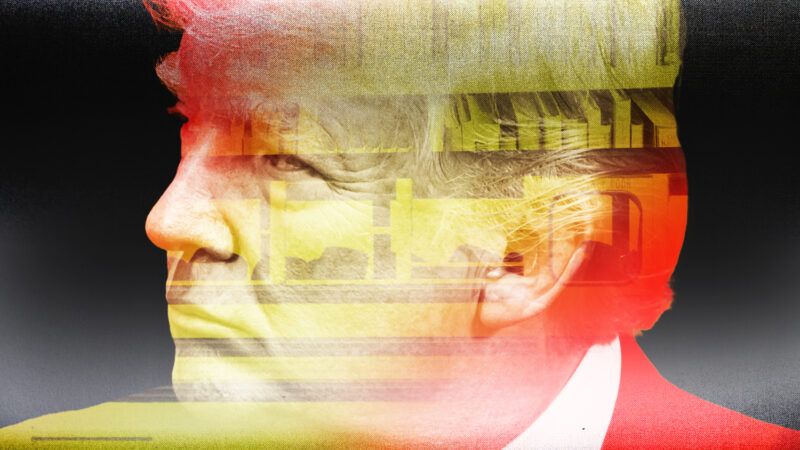Will Trump Try To Shut Down the Department of Education?
While Trump can't dissolve the department by executive action, getting rid of it through legislation is still a good idea.

The Trump administration has begun drawing up an executive order that would aim to radically diminish the Education Department, with the goal of eventually scrapping it entirely, CNN reported last week. According to CNN, the anticipated plan would include an order directing the secretary of education to develop a plan to shrink the department through future executive orders, as well as a drive from Trump for Congress to formally nix the department.
While it does not look like Trump will attempt to dissolve the Education Department through executive action, he clearly intends to do the next best thing. "I told Linda, 'Linda, I hope you do a great job in putting yourself out of a job,'" Trump said of education secretary nominee Linda McMahon last week. "I want her to put herself out of a job."
The move comes as part of a broader project to shrink the federal government through executive orders—a plan that's been having mixed results, especially considering that many government functions and departments can only be abolished by Congress. So far, Trump is facing dozens of lawsuits attempting to halt his multitude of recent executive orders.
While it seems unlikely that Congress will move to dissolve the Department of Education altogether, should the improbable happen, the result would be far from the armageddon for American education that many of Trump's detractors claim it would be.
Currently, over 90 percent of education funding comes from nonfederal sources, mostly state and local governments. Rather than funding or running American schools, the Education Department is mostly concerned with running the massive federal student loan program—a funding apparatus that has hardly made obtaining a college education cheaper or easier. Few realize that the Education Department wasn't even established until 1979. American children were educated in public schools before the Department of Education, and in a world without a formalized cabinet position devoted to education, there's little reason to think much will change for K-12 schools.
"Maybe some of the federal policies are good ideas, and often they're bad. But they've reduced the variety of approaches among public schools which are nudged to comply with federal preferences. And, importantly, they've done nothing to improve the results of government-run schools that consistently fail to properly educate large numbers of American children," Reason's J.D. Tuccille wrote on Monday. "So, getting rid of the federal Department of Education could decentralize education, improve outcomes, and increase parents' satisfaction with how their kids are taught."


Show Comments (111)